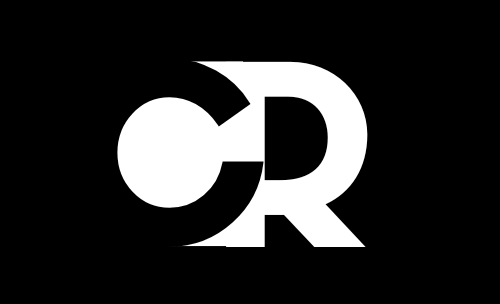Key Person Insurance vs Life Insurance | Small Business Tips

Running a small business means preparing for both opportunities and risks. One risk that often gets overlooked is what happens if a key individual like an owner, partner, or top employee passes away unexpectedly. That’s where key person insurance and life insurance come in, offering financial protection in very different ways.
While both types of coverage provide a payout in the event of death, their purpose and beneficiaries aren’t the same. Life insurance is designed to protect the individual’s family, while key person insurance safeguards the business itself. Understanding the difference between the two helps small business owners make smarter decisions about which coverage or combination they really need.
What Is Key Person Insurance?
Key person insurance, sometimes called key man insurance or business life insurance, is a policy that protects a company when a vital individual unexpectedly passes away or becomes disabled. In many small businesses, the owner, co-founder, or a top employee carries unique knowledge, relationships, or skills that can’t easily be replaced. Losing that person could disrupt operations, scare away investors, or even put the company at risk of closing.
With key person insurance, the business itself is both the owner and the beneficiary of the policy. If the covered individual dies, the payout goes directly to the company, not to their family. This money can be used to cover expenses while finding a replacement, pay off debts, reassure lenders or partners, or simply give the business breathing room during a difficult transition.
In short, key person insurance is about safeguarding the business’s survival. It doesn’t replace personal life insurance for the individual, but it ensures the company can weather the financial shock of losing someone whose role is critical to its success.
What Is Life Insurance?
Life insurance is designed to protect an individual’s family or dependents, not a business. In this type of policy, the insured person names their spouse, children, or other loved ones as beneficiaries. When the policyholder passes away, the payout goes directly to those beneficiaries to help them cover living expenses, pay off debts like a mortgage, or secure their long-term financial stability.
Unlike key person insurance, the purpose of life insurance is personal. It ensures that the people who rely on the insured individual’s income aren’t left struggling financially after an unexpected loss. There are different types such as term life, whole life, and universal life but all serve the same fundamental goal: providing peace of mind that a family’s financial future is protected.
For small business owners, life insurance plays an equally important role. It helps ensure that their family’s personal finances are stable even if the business itself suffers, making it a complement not a substitute for key person insurance.
Key Differences Between Key Person and Life Insurance

At first glance, key person insurance and life insurance may look similar since both involve a payout after someone passes away. However, the purpose, beneficiary, and use of the payout are what set them apart.
With key person insurance, the business is the policy owner and beneficiary. The coverage is meant to protect the company from financial setbacks if a crucial person dies or becomes disabled. The funds can be used to keep operations running, pay debts, hire and train a replacement, or even wind down the business in an orderly way if needed.
With life insurance, the individual (or sometimes their employer on their behalf) owns the policy, and the beneficiaries are the person’s family or dependents. The payout is used for personal expenses covering household bills, education costs, or future financial security.
In short: key person insurance protects the business, while life insurance protects the family. For small business owners, it’s often not a question of one or the other, but understanding how both can play different roles in a complete protection strategy.
Why Small Businesses Need Key Person Insurance?
In a large corporation, losing one employee may cause disruption, but the business usually has enough resources to absorb the impact. For a small business, however, the loss of a key individual like the founder, top salesperson, or technical expert can be devastating. The company’s reputation, customer relationships, and even its ability to operate may hinge on that one person.
Key person insurance acts as a safety net in these situations. The payout gives the business time and resources to recover rather than being forced into sudden closure or heavy debt. For example, it can cover payroll while the company looks for a replacement, help reassure lenders and investors that the business can stay afloat, or provide cash flow to buy out the deceased person’s shares if necessary.
In essence, this type of coverage helps protect the business’s long-term stability. Without it, a sudden loss could undo years of hard work and leave employees, customers, and partners uncertain about the company’s future. That’s why key person insurance is often considered a must-have safeguard for small businesses.
When Life Insurance Matters More?
While key person insurance is about protecting the business, life insurance is often the more critical policy when it comes to protecting your loved ones. For small business owners, their family’s financial security is just as important as the survival of the company sometimes even more so. If you’re the primary breadwinner, life insurance ensures your spouse, children, or dependents can cover living expenses, pay off debts, and maintain stability after your passing.
Life insurance also plays a role in estate and succession planning. If you own a business, your family may not want or be able to run it after you’re gone. A personal life insurance policy can provide the funds they need to pay estate taxes, cover outstanding business loans, or support them while deciding what to do with the company.
In short, life insurance is less about protecting the business itself and more about protecting the people behind it. For many entrepreneurs, it’s the foundation of a complete financial safety plan, ensuring their family doesn’t face hardship while also giving them flexibility in how they handle the business in the future.
Can You Have Both Policies?
Yes and in many cases, small business owners should. Key person insurance and life insurance serve different purposes, and having both creates a stronger safety net. Key person insurance ensures the business has the financial support it needs to survive the loss of a crucial individual, while life insurance ensures the individual’s family is financially protected at the same time.
For example, imagine a business owner passes away unexpectedly. With key person insurance, the company receives a payout to cover expenses, reassure lenders, and keep operations steady. At the same time, the owner’s personal life insurance policy provides financial support for their family, helping them pay off debts or maintain their lifestyle. Together, both policies cover two different but equally important responsibilities: protecting the business and protecting the people who depend on you.
Having both isn’t always about choosing the largest policies, but about balancing coverage to fit your needs and budget. This combination approach gives peace of mind that neither your company nor your family will be left vulnerable if the unexpected happens.
How to Choose the Right Coverage for Your Business?
Choosing between key person insurance, life insurance, or both depends on your business structure, financial goals, and personal responsibilities. The first step is to identify who the “key people” are in your company. If losing them would cause serious financial strain or make it difficult to continue operations, then key person insurance is worth considering.
Next, look at your personal situation. If you have a spouse, children, or other dependents who rely on your income, life insurance is essential. Even if your business provides steady revenue, that money may not be guaranteed to support your family after your passing. Personal life insurance fills that gap by directly protecting your loved ones.
It’s also important to consider how much coverage is enough. For key person insurance, calculate how much money your company would need to cover debts, replace lost revenue, or hire a qualified replacement. For life insurance, think about household expenses, debts, future education costs, and long-term financial needs of your dependents. Speaking with a financial advisor or insurance professional can help you strike the right balance without overspending.
Ultimately, the right mix of coverage ensures that both your business and your family are secure, no matter what the future holds.
Final Thoughts
For small business owners, both key person insurance and life insurance play vital but different roles. Key person insurance keeps the business stable if a crucial individual is lost, while life insurance provides financial security for the people who depend on you personally. Neither replaces the other they work best as part of a broader protection plan.
By understanding the difference and evaluating your unique situation, you can choose the right coverage mix to safeguard both your company and your family. In the end, the goal is simple: peace of mind that your hard work won’t unravel and your loved ones won’t struggle if the unexpected happens.






